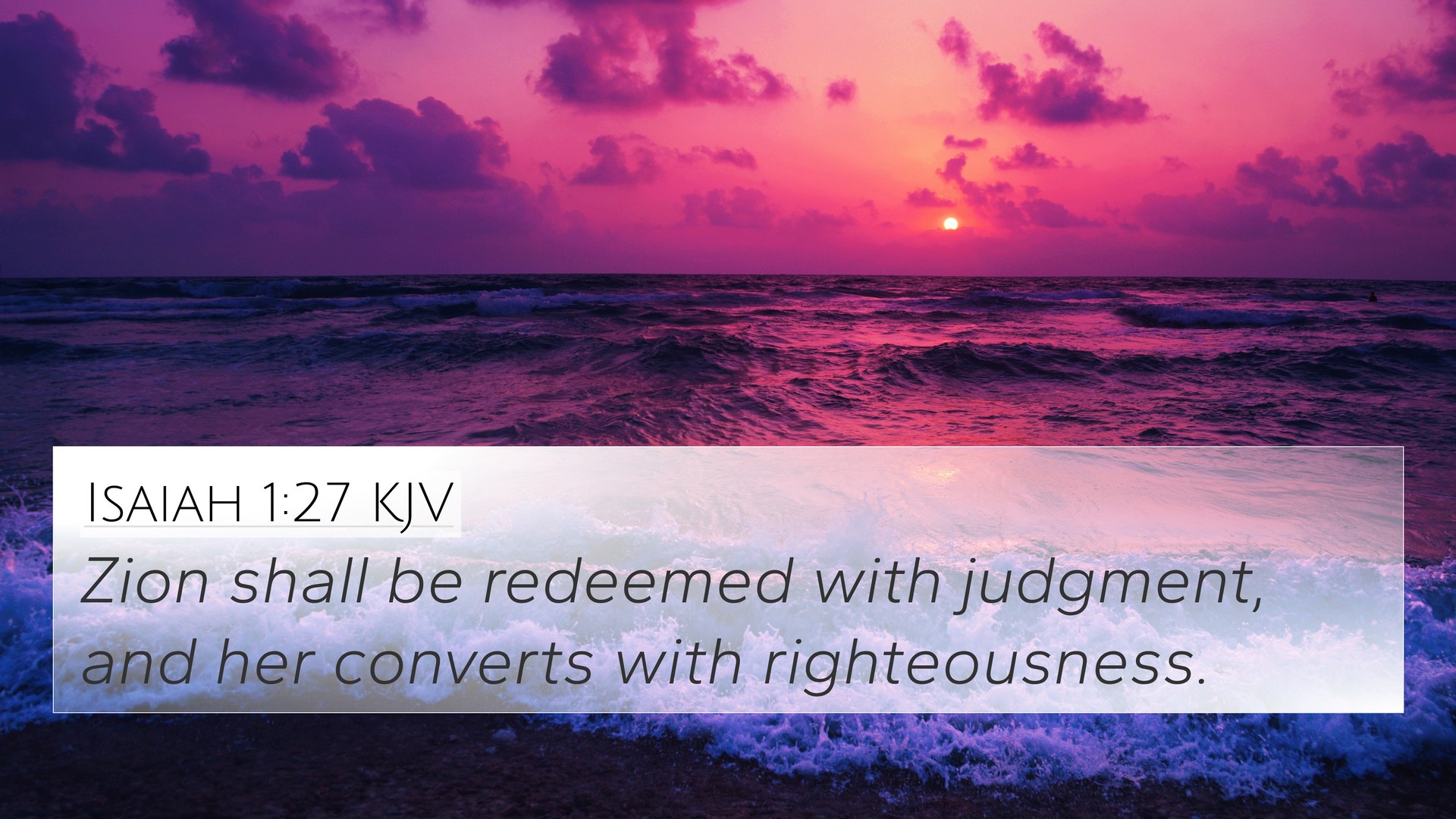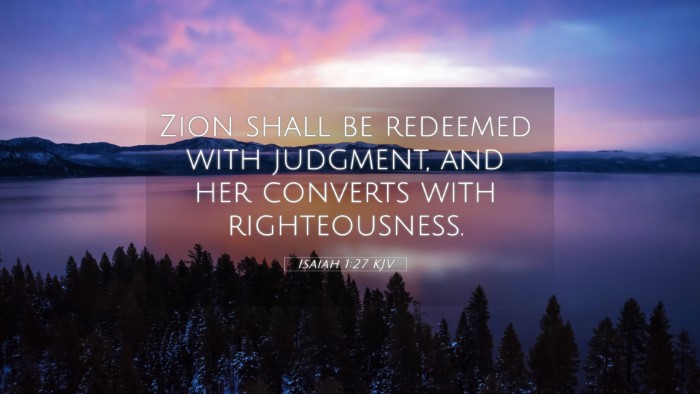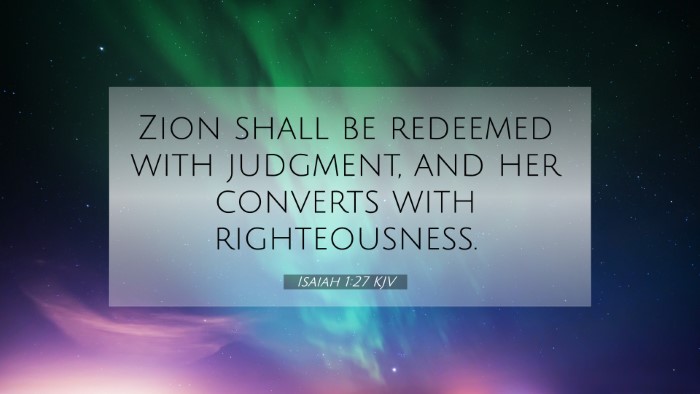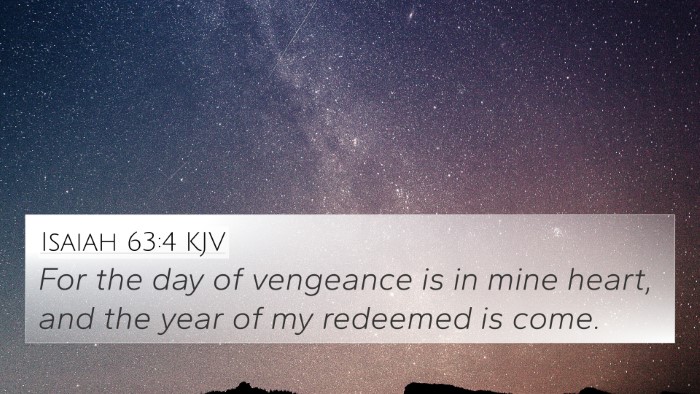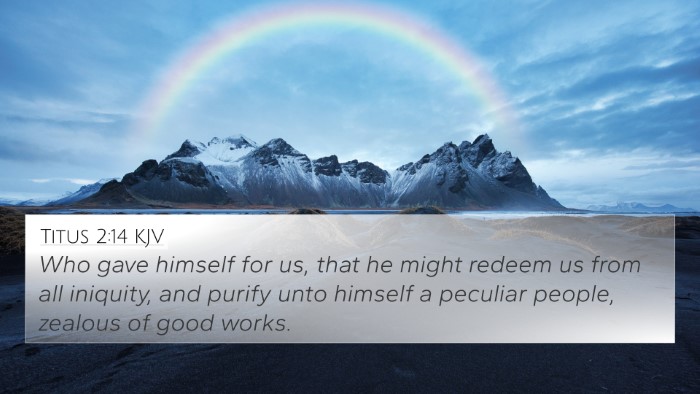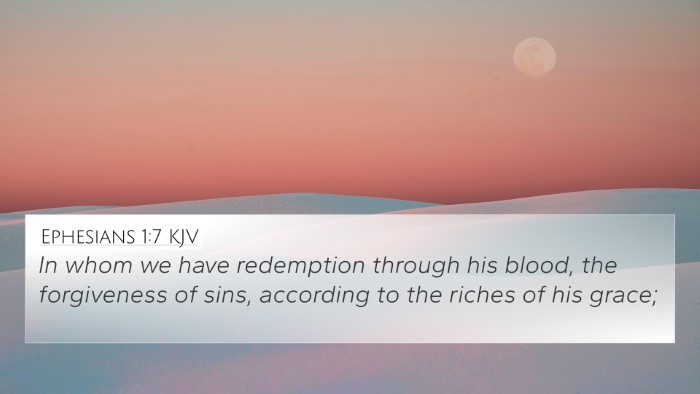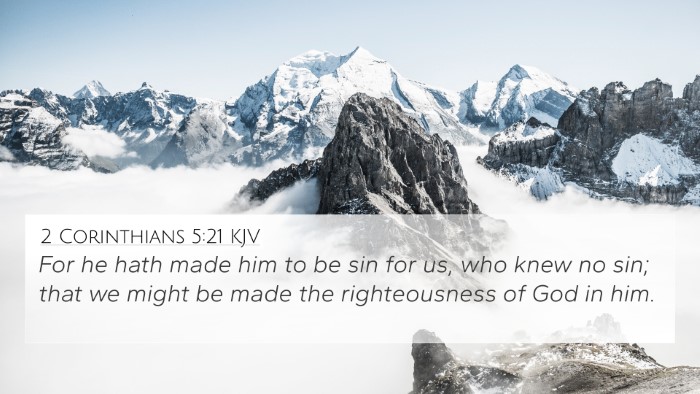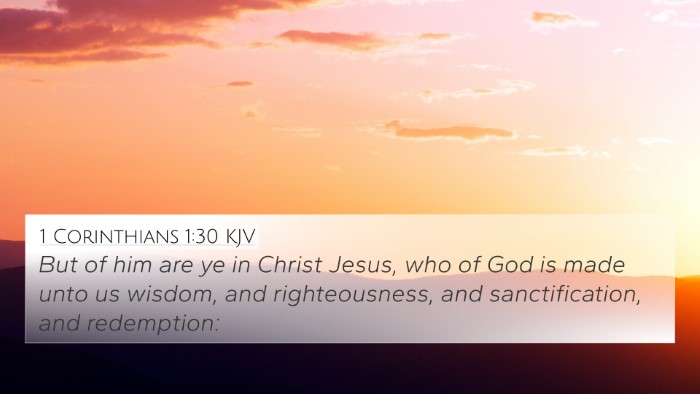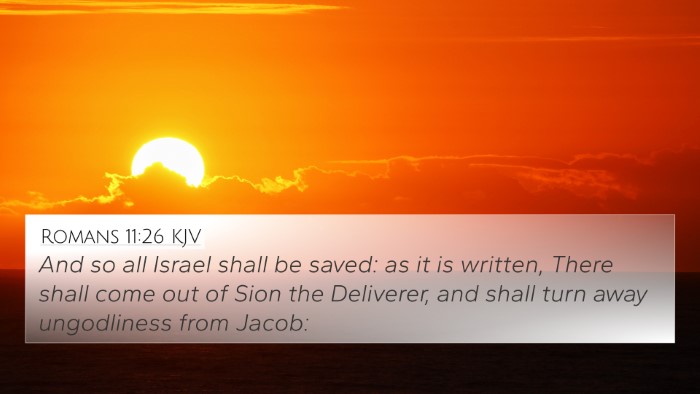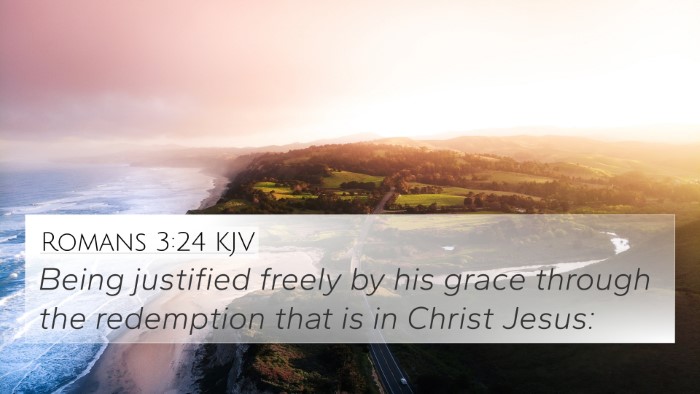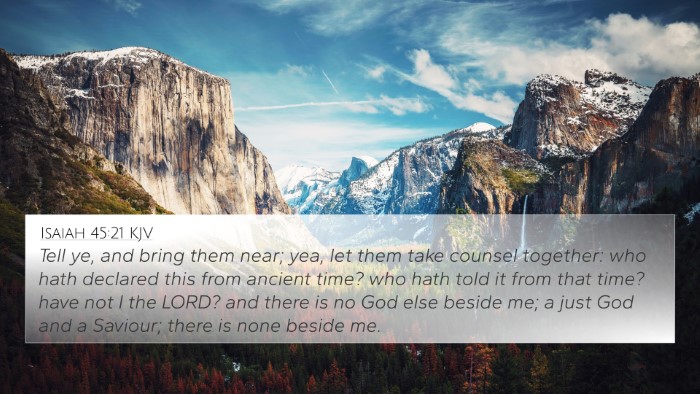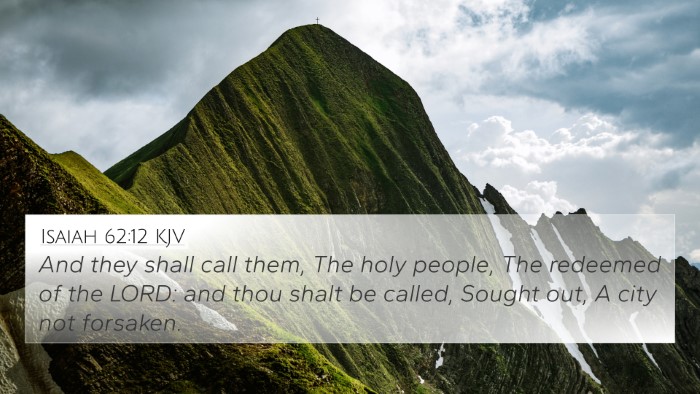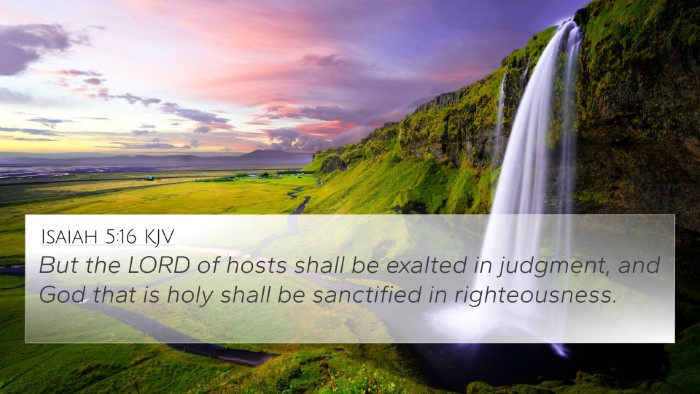Understanding Isaiah 1:27
Isaiah 1:27 states: "Zion shall be redeemed with judgment, and her converts with righteousness." This verse emphasizes the themes of redemption and divine justice, highlighting a transformative process where the faithful are brought back to a right relationship with God.
Summary of Interpretations
The verse indicates that God's redemptive work will occur through justice. The surrounding context illustrates the disobedience of Israel, but this verse assures that despite their failings, there is a promise of restoration through righteousness.
Main Themes from Commentaries
-
Matthew Henry's Commentary
Henry elucidates that the redemption of Zion is linked to judgment, symbolizing God's righteous action in restoring the faithful Israelite while punishing the wicked. This reflects God’s commitment to uphold justice alongside grace.
-
Albert Barnes' Notes
Barnes emphasizes that the term "judgment" here implies a process of discerning right from wrong. The deliverance from sin and the establishment of righteousness amongst the people indicate a profound shift in spiritual and moral direction.
-
Adam Clarke's Commentary
Clarke notes that this verse serves as a hope for the faithful, suggesting that those who turn back to God will be redeemed through an act of divine righteousness, implying a moral transformation necessary for true redemption.
Bible Cross-References
To deepen understanding, here are several cross-references related to Isaiah 1:27:
- Isaiah 26:6 - "The foot shall tread it down, even the feet of the poor, and the steps of the needy." (The theme of justice is prevalent)
- Isaiah 40:10 - "Behold, the Lord God will come with strong hand..." (God's part in salvation and deliverance)
- Jeremiah 31:11 - "For the Lord hath redeemed Jacob, and ransomed him from the hand of him that was stronger than he." (Redemption theme)
- Psalm 37:39 - "But the salvation of the righteous is of the Lord: he is their strength in the time of trouble." (Divine support and righteousness)
- Romans 3:26 - "To declare, I say, at this time his righteousness: that he might be just, and the justifier of him which believeth in Jesus." (New Testament fulfillment of Isaiah's promises)
- Romans 8:1 - "There is therefore now no condemnation to them which are in Christ Jesus..." (Redemptive aspect)
- Revelation 21:2 - "And I John saw the holy city, new Jerusalem, coming down from God out of heaven..." (The ultimate fulfillment of God's promise of redemption)
Connections Between Bible Verses
This verse connects richly with many other scriptural passages reflecting themes of redemption, judgment, and divine justice. It is essential to understand these interconnected meanings to grasp the full intention behind God's words to His people.
Thematic Bible Verse Connections
Isaiah 1:27 speaks not only to the immediate context of Israel's situation but also to the eternal promises of God, creating a thematic tapestry that resonates throughout both Testaments.
Tools for Bible Cross-Referencing
Using a bible concordance is invaluable for studying this theme. It helps find related verses and enhances understanding through comparative Bible verse analysis. Engaging with a bible cross-reference guide or a cross-reference Bible study enables readers to explore the intricate connections throughout scripture.
Conclusion
Isaiah 1:27 is a beacon of hope and justice, illustrating how God’s righteousness leads to restoration. By examining cross-references such as those listed, one begins to see the expansive narrative of redemption woven throughout the Bible, making the intricate links between the Old and New Testaments clear.
Applying Cross-Referencing in Study
Identifying connections between scripture enhances one's understanding of biblical themes and can aid in sermon preparation or personal study. Consider utilizing comprehensive bible reference resources and bible chain references for deeper explorative studies of this essential doctrine.
